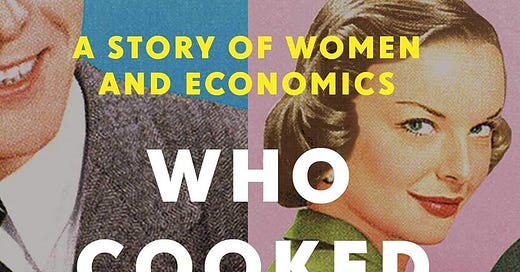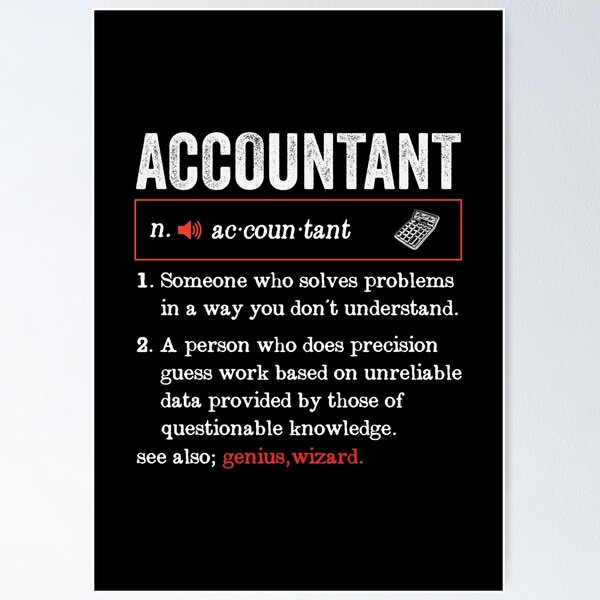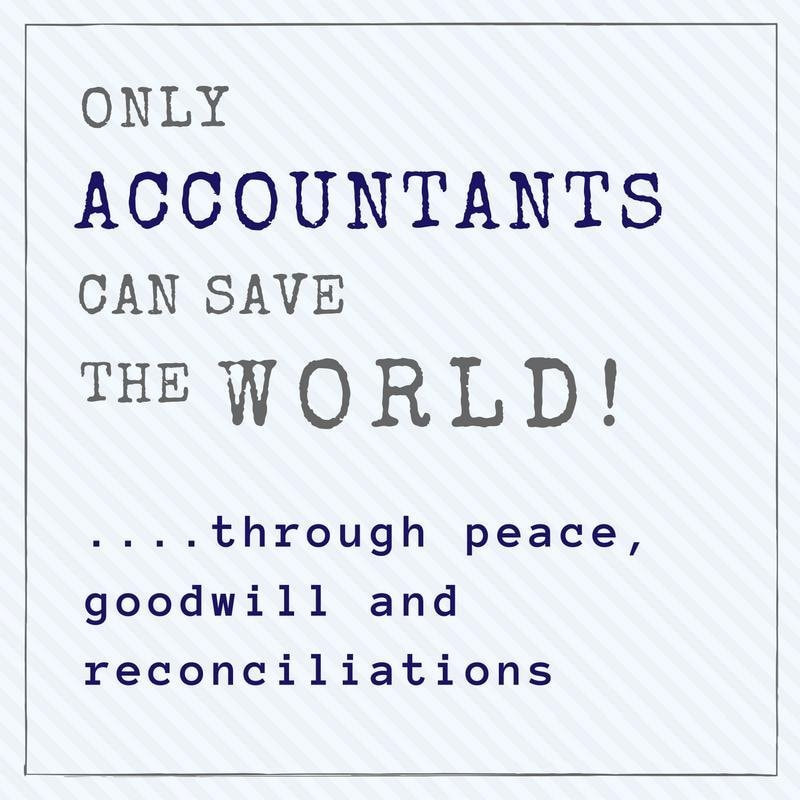Only The Accountants Can Save Us Now
Too much and for too long, GDP has been used as the ONE BIG NUMBER for Counting What Counts. Everyone knows it's wrong and we gotta fix it.
National Accounting
It all started because of the war. In the summer of 1940, the British government was scrambling to figure out how to fund a defense of England. What they needed was a clearer understanding of their war costs and where the money would come from.
Enter Simon Kuznets. His task? To figure it out using accounting – the same kind of bookkeeping merchants in Venice had used centuries before. But now, it was about to be deployed on a massive, national scale.
Kuznets called this new beast of an idea National Income Statistics, or what we know today as the Gross National Product (GNP). It’s a term that’s become synonymous with economic success, used by governments, economists, and the media to gauge how well we’re doing as a nation. It's like the profit-and-loss statement of the world. But like any good accountant knows, even the best system can have flaws. And it turns out, the GNP’s were spotted pretty early on.
Today, GNP or GDP (Gross domestic Product) is on the hot seat, with many alternative measures gaining ground.
A Skeptical Start
As the famous economist John Maynard Keynes once said:
“The ideas of economists and political philosophers, both when they are right and when they are wrong, are more powerful than is commonly understood. Indeed the world is ruled by little else. Practical men, who believe themselves to be quite exempt from any intellectual influence, are usually the slaves of some defunct economist. Madmen in authority, who hear voices in the air, are distilling their frenzy from some academic scribbler of a few years back. I am sure that the power of vested interests is vastly exaggerated compared with the gradual encroachment of ideas.
—John Maynard Keynes, The General Theory of Employment, Interest and Money, ch. 24, p. 383 (1935)”
In 1968, just two days after announcing his presidential campaign, Robert Kennedy gave a powerful speech that critiqued national accounting in terms that hit home for everyone. For centuries, accounting had been a secretive, almost mystical practice, the exclusive domain of accountants. But Kennedy wanted to tear back the curtain.
He pointed out that GNP counted things that shouldn’t be celebrated. It counted cigarette ads, the damage of air pollution, and even the police cars that fight riots. But it didn’t count things that actually matter: the health of our children, the quality of their education, or the beauty of our culture. He argued that GNP missed the things that make life worth living.
Kennedy, tragically, was assassinated just months after his speech. But his criticism of GDP as the be-all-and-end-all of prosperity sparked a much-needed debate.
The Blind Spots of GNP
Kuznets, Keynes, and other great economists knew that the GNP system had flaws right from the start. Kuznets, for instance, suggested that national accounts should factor in unpaid household labor – the kind of work that goes unnoticed, like caring for children, elderly parents, or managing a household. He was right. Why wouldn’t we account for what keeps society running?
One of my favourite economists Kate Raworth says the following about Adam Smith in her book Doughnut Economics: Seven Ways to Think Like a 21st-Century Economist:
____________________________________________
“When Adam Smith, extolling the power of the market, noted that, ‘it is not from the benevolence of the butcher, the brewer, or the baker that we expect our dinner’, he forgot to mention the benevolence of his mother, Margaret Douglas, who had raised her boy alone from birth. Smith never married so had no wife to rely upon (nor children of his own to raise). At the age of 43, as he began to write his opus, The Wealth of Nations, he moved back in with his cherished old mum, from whom he could expect his dinner every day. But her role in it all never got a mention in his economic theory, and it subsequently remained invisible for centuries.”
Katrine Marçal took this idea further in her wonderful book, WHO COOKED ADAM SMITH’S DINNER. It’s a crucial accounting of what we should be accounting for.
Fururist Economist Hazel Henederson described the economy as more like a cake. It’s certainly more true to life than anything taught in business schools today.
In Double Entry: How The Merchants Of Venice Created Modern Finance Jane Gleeson-White recounted a long history of bookkeeping just to get to the point… double-entry accounting was nothing short of revolutionary: it fueled the Renaissance, enabled capitalism to flourish, and created the global economy. John Maynard Keynes and others would use it to calculate GDP, the measure of a nation’s wealth. Yet double-entry accounting has had its failures. With its disregard of environmental and human costs, and without regard for our stores of wealth in natural resources, the time may have come to re-create it for the future.
Keynes, ever the visionary, believed that governments should track natural resources just like businesses track raw materials. After all, those resources are finite, and our wealth is tied to how wisely we manage them. If we don’t count them, we’re not truly accounting for the future.
The problem is that GDP measures a flow of wealth not a stock. It’s an income statement, rather than a balance sheet. It takes no stock of our natural wealth, our potential, or our ideas.
By the 1940s, Kuznets distanced himself from the U.S. government’s version of GNP and spent the rest of his career calling it out as a flawed approach. In 1971, when he won the Nobel Prize in Economics, he warned about the dangers of focusing solely on economic growth. The real costs of economic development – like social well-being and environmental damage – were being ignored.
Why Does This Matter?
Think about it. How can we account for the money made from gambling without also considering the personal and societal costs of addiction? How can we collect taxes on alcohol and not factor in lost productivity and healthcare costs? Or how can we talk about the economy growing while we’re draining our forests, our rivers, and our planet’s precious resources?
If the nation was your home would you not be curious about how much wealth you had in the bank as much as what your withdrawals from that bank could buy?
Those withdrawals are substantial and we don’t have oeverdraft protection on our forests, fields, or waters. We don’t count the long-term costs of rising healthcare, outdated infrastructure, and environmental destruction in our national accounts. It’s like ignoring the credit card bill while celebrating the “profit” of a night out.
The New Story
Now, we’ve reached a point where we need to rethink everything. We need to ask: What are we measuring, and why?
The current system is outdated and misleading. It fails to track the health of households, the environment, or the true costs of poverty. It treats resources as infinite when they are, in fact, deeply limited.
So, where do we start? With the accountants, of course! But instead of starting at the top with national figures, let’s start where it really counts: the household and the common wealth it shares. Households are the building blocks of the economy, and their prosperity is the true measure of a country’s success. The economy should serve them, not the other way around.
Corporations, governments, and banks should all work in the service of household prosperity, not the other way round. That’s the new accounting we need – one that’s accountable to the people and the planet.
Beyond GDP: A New Hope
The good news is that alternatives to GDP are already being developed. One example is the Genuine Progress Indicator (GPI), which adjusts personal consumption with 25 factors like income inequality, unpaid household work, volunteer efforts, and environmental costs.
Genuine Progress Indicator (GPI)
What it measures: Economic, environmental, and social factors. It adjusts GDP by factoring in the costs of negative activities (like pollution and crime) and the benefits of positive ones (like volunteer work and household labor).
Why it's better: Provides a holistic view of progress by including non-market activities and accounting for externalities.
In 2010, Maryland became the first state to adopt GPI as an alternative to GDP, with the goal of measuring sustainable prosperity. Since then, other states have followed suit, and GPI is gaining traction as a more meaningful measure of national success.
Another option is a Better life Index. These are just two examples of
Better Life Index (BLI)
What it measures: A range of factors from housing and income to health, education, and work-life balance (developed by the OECD).
Why it's better: Allows individuals to weigh dimensions according to household priorities.
These are just two examples of dozens of frames to count what counts. It doesn’t mater. Economics is just the story we tell ourselves about where our wealth comes from and where it goes. We just need to count what counts and do it consistently so we can compare and grade our progress.
The Last Hope?
It may sound dramatic, but in many ways, accountants could be our last hope for saving the planet. The old ways of measuring success have failed us, and now we need a new system. A system that recognizes the value of our people, our culture, and our environment, rather than just the growth of abstract numbers.
The crisis we’re facing isn’t just about numbers – it’s about our way of life. We’ve racked up a cultural, social, and environmental bill that we haven’t even begun to acknowledge. But if we start with the basics – if we start keeping track of where we’ve been and where we’re going – maybe, just maybe, we can start to change our course.
Accounting isn’t just about profits and losses. It’s the way we write the story of where our wealth comes from and where it goes. And we need to get it right if we’re ever going to make it to the future.
So, here’s to the accountants – the unsung heroes who can make or break the planet. The time to start a new story is now.









the thing is, any balanced honest accounting would show a ledger with a very dismal and frightening bottom line if ecological over-shoot, air & water pollution, species extinction, deforestation, poisoned soil and devastated fish stocks are taken into account.